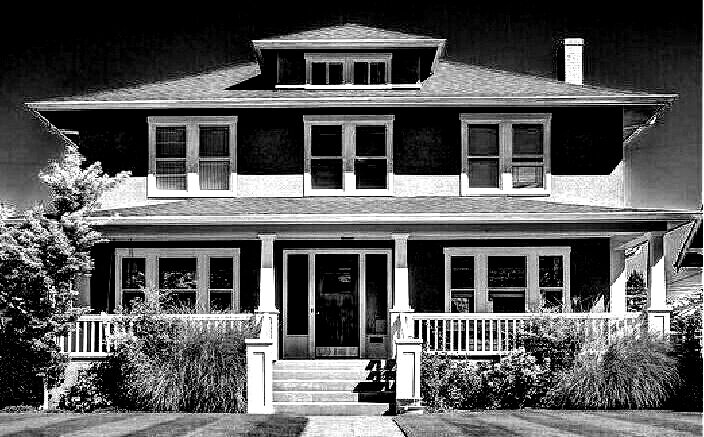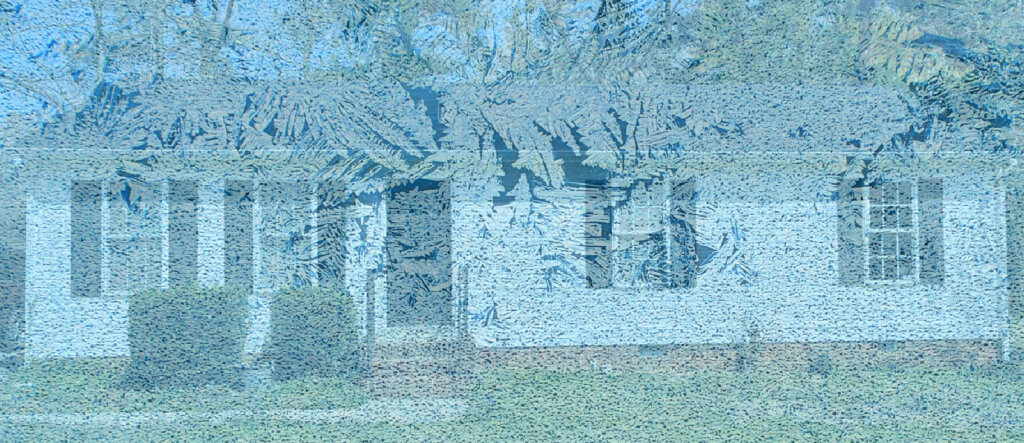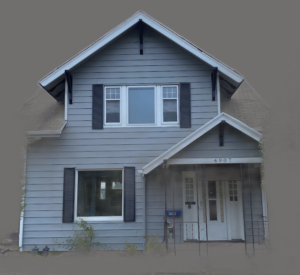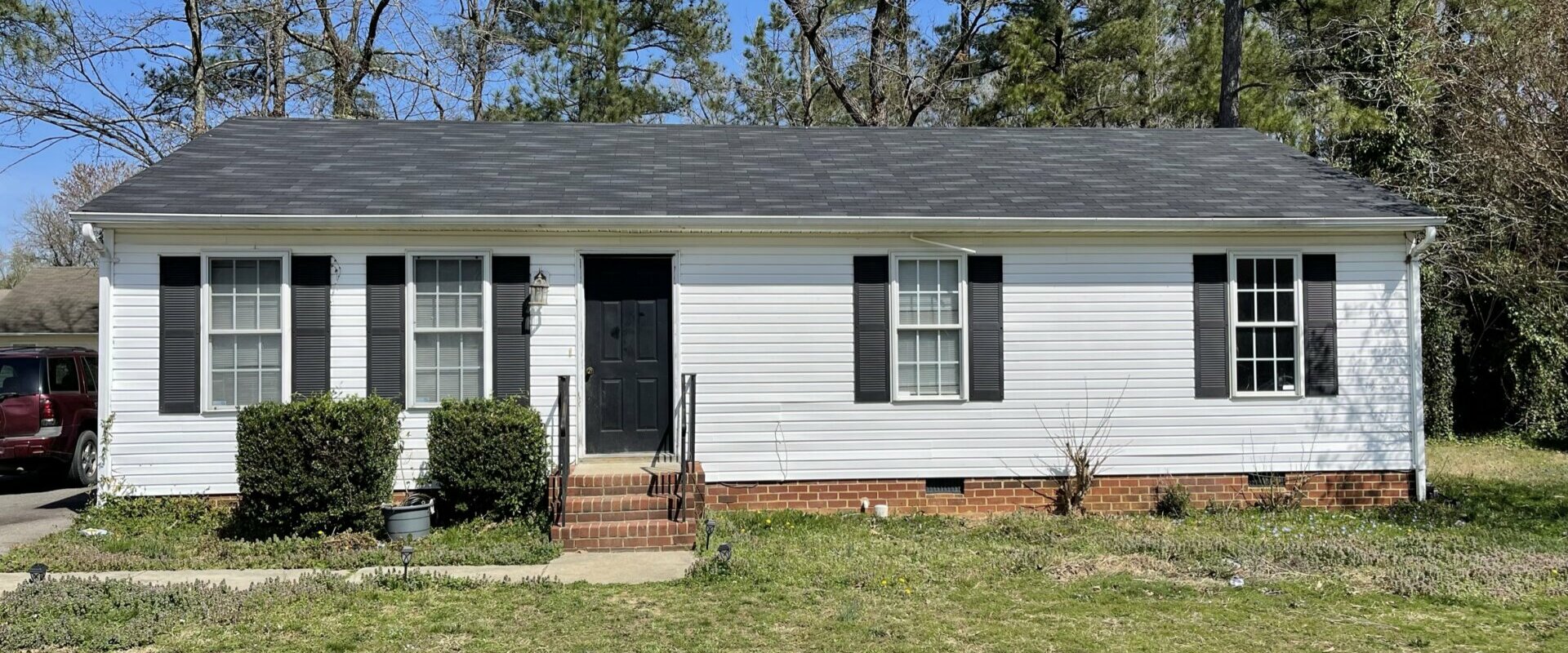How To Sell A House With Mold In Virginia
Anyone who comes into contact with mold could get sick. People who already have breathing problems like asthma, COPD, or allergies can be in even more danger. Mold spores can irritate the upper respiratory system, cause allergic reactions, and have even worse long-term effects if they are not properly treated.
Exposure can cause coughing, sneezing, wheezing, watery eyes, tiredness, headaches, skin discomfort or rashes, and trouble breathing. People who live or work in a home or office building can get it. If you don’t treat it, it can spread to other parts of your body and cause illnesses.
In order to protect everyone’s health, it is important to follow the right steps when selling a house in Virginia that has mold on it.
Table Of Contents
1. Health Hazards Of Mold Exposure
2. Identifying Common Sources Of Mold
3. Legal Requirements For Selling A House With Mold Issues
4. Potential Impact Of Mold On Home Sales Prices
5. Assessing The Presence Of Mold During Home Inspections
6. Virginia State Laws And Regulations Regarding Selling Houses With Known Mold Problems
7. What Is The Law On Mold In Virginia?
Identifying Common Sources Of Mold

Mold can also grow in HVAC systems that aren’t well maintained. Checking your home often for signs of wetness or standing water is a good way to lower the risk of mold growth.
Ensuring all the windows and doors are properly shut will also help keep out moisture and humidity that could cause mold to grow. These steps will make it easier and safer for everyone to sell a house in Virginia with mold.
Mold can also grow in HVAC systems that aren’t well maintained. Checking your home often for signs of wetness or standing water is a good way to lower the risk of mold growth.
Making sure all the windows and doors are properly shut will also help keep out moisture and humidity that could cause mold to grow. These steps will make it easier and safer for everyone to sell a house in Virginia with mold.
Removing And Preventing Mold Infestations
As part of the Virginia home sales process, it’s important to get rid of mold and prevent it from coming back. It’s also important to know which places, like basements or bathrooms, are likely to grow mold and take the right precautions.
People who own homes should check for signs of water damage. Water damage can cause wetness to build up and make a great place for mold spores to grow. To get rid of mold, use a scrub brush and a bleach and water solution. Wear safety gear like gloves, boots, and a face mask.
To keep mold from growing again, homeowners should ensure the whole house has enough air flow by putting fans in the bathrooms and kitchens or regularly opening the windows. Also, make sure there are no leaking pipes or machines that could lead to too much moisture buildup.
If people follow these tips, they can keep their homes free of mold and ensure they meet the Virginia house sales standards.
Legal Requirements For Selling A House With Mold Issues

In Virginia, you must follow the law when you try to sell a house with mold problems. Any mold the seller knows about must be disclosed to possible buyers and written down on the property disclosure statement.
Additionally, it is important to show all the proof needed to show that the mold has been properly and professionally removed. Also, if the buyer asks for a home inspection before the closing, the seller has to let the inspector look around and check for mold or other environmental dangers.
Lastly, before making a sale, the seller has to answer any other questions the buyer has about mold safety and health standards.
Seller Responsibilities For Disclosing Mold Problems
In Virginia, it can be hard to sell a house that has mold on it, but there are steps that need to be taken to make sure the deal is legal. It is important for you as a seller to know what you need to do to let the buyer know about any mold issues in the house.
In Virginia, sellers must tell buyers about any mold problems they know about before they sign a deal to sell their home. This means that the seller should still check the house and take the right steps to find any possible mold problems, even if they don’t know about them.
According to experts, once the problem is known, sellers should let potential buyers know about it and give them a chance to do their own inspection of the property. Before putting their house on the market, buyers should also make sure they know how to properly fix any mold problems that might be there.
Sellers can successfully sell a home in Virginia that has mold if they follow these tips and are honest about any mold problems that are happening or might happen.
Buyer Considerations When Buying A Home With Mold Damage
There are a few things you should think about before you buy a house that has mold damage. Before buying a house, people who are interested should first hire an inspector who is trained to look for mold problems.
Before signing any papers, it’s important to get a full inspection report from the tester that lists all of the mold-related issues. Also, buyers should make sure that any repairs or mold removal were done properly by licensed professionals.
Also, because some types of mold can be harmful to your health, it’s important to make sure that the property has had all of the necessary treatments or fixes before the sale goes through. Lastly, when buying house insurance, buyers should know about any exclusions that might apply to mold damage that is already there and make sure they are covered for problems that might happen in the future.
Taking these measures will help ensure a safe and secure purchase when buying a house with mold damage in Virginia.
Understanding Black Mold: Pictures, Symptoms, And Treatment
The fungus Stachybotrys chartarum, also known as “black mold,” can be very bad for your health if you come into contact with it. This plant generally lives in damp places like basements and bathrooms where there is a lot of water.
There will be dark spots on walls and other surfaces and a musty smell in the air if you have black mold. Black mold exposure can cause mild to serious symptoms, such as coughing, sneezing, headaches, skin and eye irritation, and trouble breathing.
If you think black mold might be growing in your home, you should hire a professional right away to get rid of it. To get rid of black mold, you need to clean all the surfaces that are affected with a solution of detergent and water and then use a disinfectant to kill any leftover spores.
For the same reason, places with a lot of moisture should have more air flow to lower the chances of future infestations.
Potential Impact Of Mold On Home Sales Prices

When selling a house with mold in Virginia, it is important to consider the potential impact of mold on home sales prices. Without taking proper steps to address any existing mold, the sale price of a house can be drastically reduced or even deter buyers completely.
Basements and bathrooms are common places for mold to grow because they are damp and don’t have enough air flow. Also, if you don’t stop it, it can quickly spread between floors and walls.
Potential buyers may be very worried if they see mold because it could mean that there is water damage, which could cause more damage to the structure in the future. It is important to get a checkup before you put your house on the market so that you can find any mold problems and fix them before you put the house on the market.
Lastly, having a professional repair service remove any mold will help buyers feel better and make sure you get the most money for your home.
Potential Dangers Of Living In A Home With High Levels Of Mold
If you and your family live in a home with a lot of mold, it can be very bad for your health. Mold growth not only makes the air dirty, but it can also hurt building materials like wood, drywall, and more.
In the worst situations, mold growth can cause water and wetness to get into the building and damage its structure. Living in a home with a lot of mold can cause a lot of health problems, like breathing problems, skin irritations, headaches, tiredness, fever-like symptoms, and even allergies.
By taking the right steps, you can lower the risk of any health problems that might come from being around a lot of mold in Virginia. Regularly checking your home for mold is important, and you should do everything you can to fix any mold problems as soon as you find them.
Assessing The Presence Of Mold During Home Inspections

When it comes to selling a home in Virginia, understanding the presence of mold is essential. Home inspections are often conducted when selling a house, and assessing the presence of mold is an important part of this process.
Mold can be very bad for people’s health, so it’s important to know how to check for it. First, look at the walls and ceilings to see if they have any spots or discolorations that could mean water damage and mold growth.
Additionally, use your sense of smell to find any musty smells that could also be signs of mold. Lastly, make sure you hire a professional home inspector. They can check the insulation, ventilation, and other parts of the house where mold might be hard to see or smell.
Doing some research on mold before you put your house on the market can help you avoid any unpleasant surprises when it’s time to close on the deal.
Best Practices For Home Sellers Dealing With Mold Problems
If you are selling a house in Virginia that has mold in it, you should know what the best practices are for buyers who deal with mold issues. The first thing you should do before putting your house on the market is to take care of the mold problem.
This means getting an inspector to check out your house to see how bad the problem is and then making plans for how to fix it. It might even be necessary to hire a skilled contractor who knows how to get rid of and fix mold, depending on how bad it is.
Also, make sure that all the damaged areas are properly sealed off so that they can’t be seen by anyone else during open houses or showings. If buyers know about a mold problem, either now or in the past, they should be told about it and given time to do their own check.
Lastly, you should only work with real estate agents who have done this before and know how to do it legally and correctly.
How To Effectively Remediate And Remove Existing Mold Damage
To successfully sell a house in Virginia that has mold, it is important to take the steps needed to fix and get rid of any mold damage. The first thing that needs to be done is to find the source of the water that is letting the mold grow.
Roof leaks, high humidity, damp basements, and plumbing breaks are all common causes. It is important to use a professional mold removal service to make sure that all traces of mold are gone from the property once the cause has been found and fixed.
Antimicrobial treatments and HEPA cleaning are some of the special methods they will use to get rid of the mold and stop it from growing again. Also, make sure you check the whole house carefully for signs of mold that might be hidden behind walls or in places that are hard to get to.
If you can, use an infrared camera or moisture meter to find any secret water damage and mold growth. After fixing any problems that could cause water damage and getting rid of any mold that can be seen, people who want to sell their home should check with their local health department to make sure it meets all the safety requirements set by the state.
By following these tips and rules, you can help make sure that your Virginia home can be sold quickly without having to worry about the health risks that could come from mold damage, either now or in the future.
Virginia State Laws And Regulations Regarding Selling Houses With Known Mold Problems
There are laws and rules in Virginia that make sure it is safe to sell homes that have known mold problems. When selling a house with mold, it’s important for the seller to know their rights and duties. This way, they can be sure that the entire process goes smoothly.
In Virginia, sellers must tell potential buyers about any mold problems they know about and show proof that the problems have been fixed if there is an ongoing mold problem. Before putting their home on the market for sale, sellers must also get a written statement from a trained professional saying that there is mold in the house.
Finally, buyers don’t have to get rid of mold on their home before putting it on the market, but they should still take steps to stop the mold from growing or spreading. Virginia homeowners who know their homes have mold problems can sell them safely if they follow these tips and rules. They won’t have to worry about legal problems or liability.
The Benefits Of Professional Services For Remediating Existing Mold Damage

For those who are trying to sell their home, fixing mold damage can be a difficult job. Professional services, on the other hand, can help you with this process in many ways.
Mold removal companies are trained and experienced enough to find the cause of the problem and come up with a good treatment plan. They also have access to special tools and know-how that let them get rid of mold in your home safely and effectively.
Professionals also know the rules and laws in their area for safely getting rid of any affected materials. In addition, they can give you good help on how to keep mold from growing on your property in the future.
Professional services are helpful for sellers because they can make sure their home is safe and will pass the inspection without any mold damage problems.
What Does An Insurance Policy Cover When It Comes To Selling A Home With Known Mold Issues?
If you are trying to sell a house in Virginia that has mold on it, your insurance may pay some of the costs. To keep themselves from losing money because of mold, homeowners should know what their insurance covers and what it doesn’t cover.
Liability insurance is the most common type of insurance for homes that are known to have mold problems. This type of insurance protects homeowners from legal claims that come from mold-related injuries or property loss. Also, it’s important to know that liability insurance doesn’t cover the costs of getting rid of the mold.
The homeowner is responsible for any costs linked to getting rid of or fixing the problem area. In some cases, insurance plans may also cover some pre-existing conditions, like mold. However, this coverage is usually very limited and may not go beyond basic repairs.
When people in Virginia want to sell a house that has known mold problems, they should carefully read their policy and call their insurance company if they have any questions about what it covers.
Proactive Steps To Take Before Listing Your Home To Ensure There Are No Hidden Sources Of Mold Infestation
If you want to sell a house in Virginia that has mold on it, you should make sure there aren’t any secret sources of mold before you put the house on the market. The first thing that should be done to get a house ready to sell is to have a certified professional do a full inspection.
This should include a visual check of the whole house, including the walls and ceilings inside, as well as the crawlspaces, basements, attics, and any other places where water could gather. The quality of the water and air should also be checked during all checks.
During the check, if any signs of mold or moisture are found, you should fix any problems right away that could lead to mold growth. You might need to hire a professional to do remediation work, like getting rid of mold or putting in fans or dehumidifiers in places with a lot of humidity.
You should also check all of your appliances and plumbing systems for leaks and fix them if you find any. Last but not least, make sure that your house has good air so that mold growth doesn’t happen again.
By taking these steps ahead of time, you can list your home without having to worry about mold coming from secret places.
Does Seller Have To Disclose Mold In Virginia?
If someone is selling a house in Virginia and knows there is mold in it, they need to tell potential buyers about it. Mold can be very dangerous to your health, so they need to know about it.
Here are some tips and guidelines for sellers of houses in Virginia that have mold:
First, hire an inspector to find out what kind of mold is there and how bad the infestation is;
Second, take steps to get rid of the mold problem before putting the house on the market;
Third, make any needed repairs or renovations. Finally, tell potential buyers everything they need to know about the mold problem so they can make an informed decision about buying your home.
By following these rules, sellers can ensure their home is safe and sellable while avoiding possible legal problems that could arise from not telling potential buyers about known problems with their home.
What Is The Law On Mold In Virginia?

In Virginia, the laws surrounding mold in a residence may vary depending on the property’s condition and location. Generally, landlords must maintain their rental properties in a safe and habitable condition for tenants.
This typically includes ensuring that any visible mold is removed or treated immediately. In addition, landlords may be liable if tenants experience health issues due to mold contamination.
Homebuyers should also be aware that there are no specific regulations regarding mold disclosure in Virginia; however, sellers are required to disclose any known defects in the property they are selling. Therefore, it is important for potential buyers to inspect a property thoroughly before making an offer and to ask questions about any potential problems with mold before signing a contract of sale.
Can You Sell A House That Has Had Mold?
“Can you sell a house that had mold?” is a question that has an answer. In Virginia, it is possible to sell a house that has mold on it, but you need to be extra careful.
Homeowners who want to sell a house that has mold should take steps to get rid of it and follow the rules set by the Virginia Real Estate Board. Also, people who are selling their homes should be ready to say if they know anything about fungi in the house.
First, people who want to sell their homes should get them inspected before they put them on the market. Checking for mold and getting tips on what to do to fix the problem will be easier with this one.
For extra help, homeowners may also want to hire a professional contractor or expert trained in mold removal services. Once all the fixes that need to be done have been done, the homeowner can put their house on the market and follow the normal steps for selling a house in Virginia, such as marketing it and being present at showings.
Virginia people who have mold in their homes can still sell them if they do their research and follow the rules in their area.
How Do You Prove A Seller Knew About Mold?
If a buyer in Virginia wants to show that a seller knew there was mold in a house they were selling, they should focus on finding proof that the seller knew there was mold before the sale.
The seller may have given you inspection reports or other information. You may also need to get records from any contractors the seller may have paid to fix or get rid of mold problems.
People who are buying a house should also look for other signs of mold, like water damage on the walls and ceilings, staining, and a musty smell.
You can also get witnesses from neighbors, family members, or past renters to help show that the seller knew their home had a mold problem before they sold it.
Additional Resources To Help Virginia Homeowners
Get Your Cash Offer Now! 💰
We buy houses in ANY CONDITION in Richmond. There are no commissions or fees and no obligation whatsoever. Start below by giving us a bit of information about your property…

